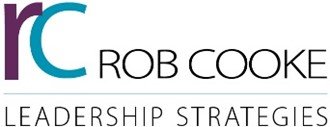
It’s All About Intentions to Act
One of the most powerful leadership concepts that I have encountered is the notion of holding people accountable for coming forward with their intentions to act. Intentions to act demonstrate accountability beyond problem solving and bringing forth recommendations.
One of my executive clients was clearly frustrated with people who were coming forward with “I want to give you a heads up” (on a challenge, problem or opportunity). She clearly communicated that bring a ‘heads up’ was useless and requested that people come forward with a more complete picture of the issue and recommendations for addressing it. More specifically, she asked that people come forward with:
A clearly defined problem, issue or situation including what specifically needed to be resolved or addressed,
A clearly defined goal(s) related to addressing the issue (i.e. what was the desired outcome),
Options for consideration including pros and cons as well as the experience and advice of others who had addressed similar issues, and
A clear recommendation(s) as to what should be done.
This all sounded great until I read the book Turn the Ship Around by David Marquet. In the book, the author describes empowerment and disempowerment phrases. Disempowerment phrases included “I recommend…, I request permission to…, do you think we should…? “. Each of these phrases transfer the accountability for decision making to the leader and the person making the statement is ‘off-the-hook’ from an accountability perspective.
Empowering phrases included “I intend to…., I plan on …., I will be….” These phrases firmly establish that the person making the statement is accountable and is deciding on the best course of action. The role of the leader is to say “OK” or “very well.” Initially you as a leader will have some questions that you would like answered such as ‘have you considered …? what will be the impact on…?, how much will this cost?, etc. eventually it is expected that the person bringing the intention to act will have anticipated your questions and will provide answers to these as part of the intention to act. At this point, your response will be a clear “OK”.
If you are serious about enhancing accountability in your organization, I encourage you to instruct your people to bring forward their intentions to act.
About the author: Rob Cooke is a leadership advisor, strategist and coach who helps leaders enhance performance. His work integrates leadership assessment, advice, coaching, mentoring and development with team performance enhancement.
October, 2022| Leadership Development
